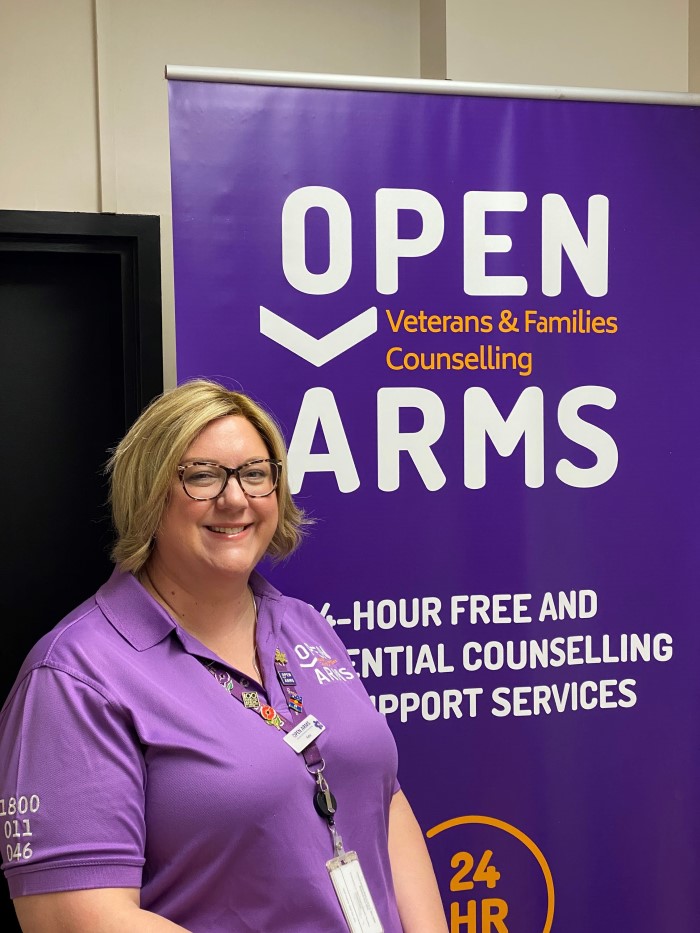Veterans receive specialist services under Model of Care

When current serving ADF personnel, veterans and their families reach out to Open Arms for support, their recovery journey is guided by a Model of Care which delivers specialised military-aware and trauma-informed services.
This care may include counselling, Lived Experience peer support, or group treatment workshops and programs which are delivered as Episodes of Care.
Head of Open Arms Leonie Nowland explains that these Episodes of Care are provided in the same way as other health services. ‘Having our own Model of Care means we can be clearer about what we do and how we do it with the veteran, including their families,’ Leonie says.
‘It begins with understanding needs and setting agreed goals, and ends with measuring outcomes from the perspective of our client.’
Leonie says the services provided by Open Arms were evidence-based with a beginning, a middle and end to help support a full recovery.
‘If you keep people as a patient or a client, that is not consistent with a recovery focus and can indeed exacerbate the individual’s feelings of helplessness and distress,’ she explains. ‘However, if people do need to receive further support, we continue to assist, and try to make it as easy as possible for them to access it.
‘Under our Model of Care, extended care is also goal-based and outcome-focused.’
To find out more a about the Model of Care and Episodes of Care, visit the Open Arms website. (Search for ‘What to expect – Frequently Asked Questions’.)
Kate models her own care
Lived Experience Peer Kate unknowingly modelled her own recovery on the Open Arms’ Model of Care, which she now uses to help others get their lives back on track.
‘After 20 years as an Army spouse, I reached out to a psychologist for what was my first Episode of Care,’ Kate said. ‘Even though I was used to my husband being away for prolonged periods, at times I struggled to cope with undiagnosed clinical anxiety, depression and obsessive-compulsive disorder.’
Her psychologist initially advised to go back to her doctor, who prescribed medication. ‘I didn’t want to take it but I was so unwell,’ Kate recalls. ‘I wasn’t ready to do the work that I needed to do long-term.’
After 6 months, Kate returned to her psychologist to learn strategies and set goals, which she now understands was a further Episode of Care. ‘At the end of my sessions with her, I had built my own tool belt to help regulate my feelings and to keep moving forward.’
Kate now practices regular self-care, which includes seeking additional mental health support when she needs it. ‘After losing a parent, I had a lot of unresolved grief so I linked myself back into clinical support, which was another Episode of Care for me.’
As an Open Arms Peer, Kate encourages and supports current ADF personnel, veterans and their families to achieve the best possible outcomes from utilising services offered under the Model of Care.
Image: Kate is an Open Arms Lived Experience Peer